 Vertical
VerticalScroll
 Vertical
Vertical





One of the forerunners, championing inclusive sanitation, worker safety, and innovations, in FSSM
Warangal is one of the first cities in the country to have issued operative guidelines on FSSM through a council resolution in March 2016
The guidelines in compliance with national level guidelines draws upon provisions related to septage management to promote a comprehensive and integrated approach to FSSM covering all aspects of the value chain from containment to disposal and reuse.
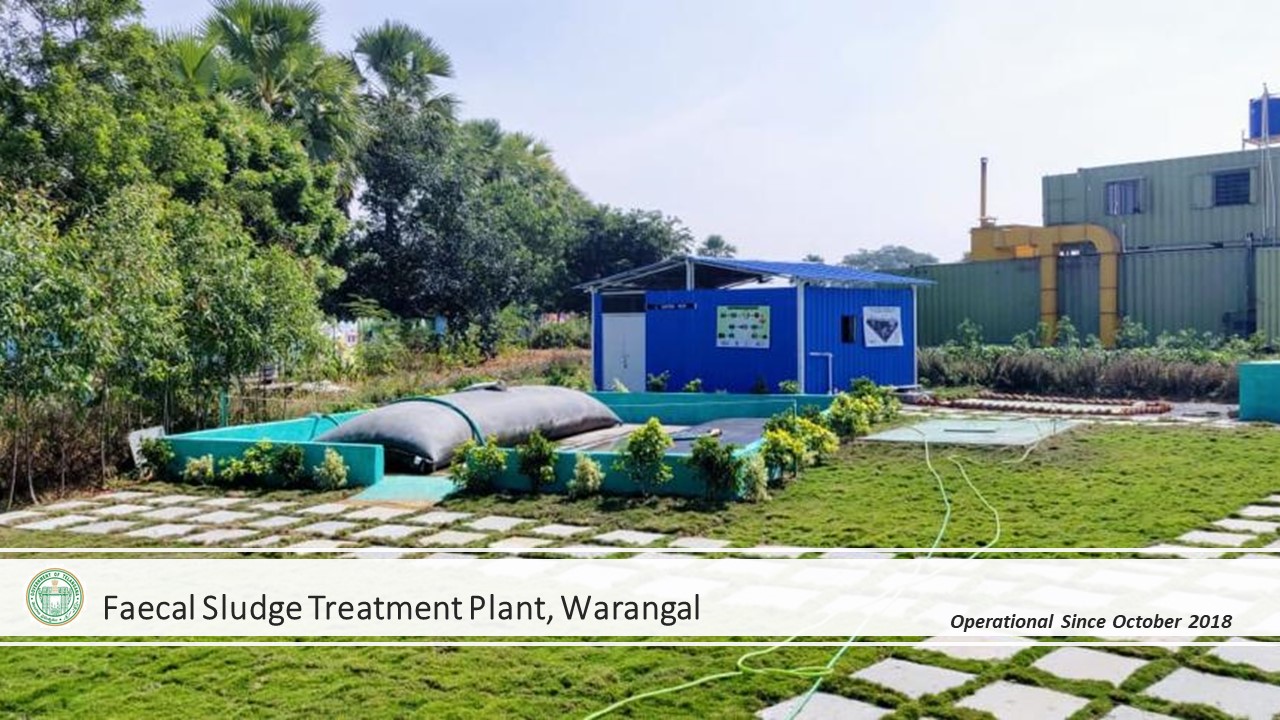
Warangal has emerged as a city of innovations in FSSM. City-Wide Inclusive Sanitation (CWIS) Approaches has informed FSSM policy and practice in Telangana and many urban areas in India
After conducting a systematic study of the sanitation situation in the city, a 15 KLD FSTP based on Pyrolysis technology was established in Warangal.
One of the core commitments of the city was to implement comprehensive WASH programs in schools as a strategy for fighting taboo and imbibing healthy sanitation practices early on.
Warangal is also the first city to have implemented Public Toilets under Public Private Partnership (PPP)
India's youngest state, Telangana adopted their own state FSSM policy on 29th September, 2018 in line with the national FSSM policy.
The government embarked on strengthening institutional frameworks with a plan of action to take on an integrated approach for addressing the state’s sanitation issues and the effective implementation of the FSSM policy.
The plan of action for the state involved taking an integrated approach for addressing the sanitation issues.

To ensure its uptake and successful implementation across the state, a dedicated leadership team known as the non-sewered sanitation (NSS) cell has been established at the CDMA office. The cell comprising of experts in the fields of Engineering, Monitoring & Evaluation, Urban Planning and Gender ensures the continued momentum for FSSM.
Weekly review meeting with municipal commissioners on development of FSTPs is motivating the private operators to complete the projects
The State government conducted an orientation program for Municipal Commissioners and Assistant Engineers (AE) in 2019 regarding ODF+ to introduce FSSM, its components and means of implementation.
ASCI with support of CDMA visited all the ULBs and trained ULB level officials and private desludging operators on safe practicing of faecal sludge and septage
The government's thrust towards FSSM implementation has led to more than 50 ULBs passing council resolutions for implementing FSSM, 70 ULBs issued licenses to private cesspool trucks and 50 ULBs appointed Nodal officers for FSSM implementation.
Operational since 2018, the Sircilla FSTP has a capacity of 18KLD and is based on unplanned drying bed method for treating waste followed by co-composting and solar sterilization.
The Warangal FSTP has a capacity of 10KLD and is based on geo-bag technology
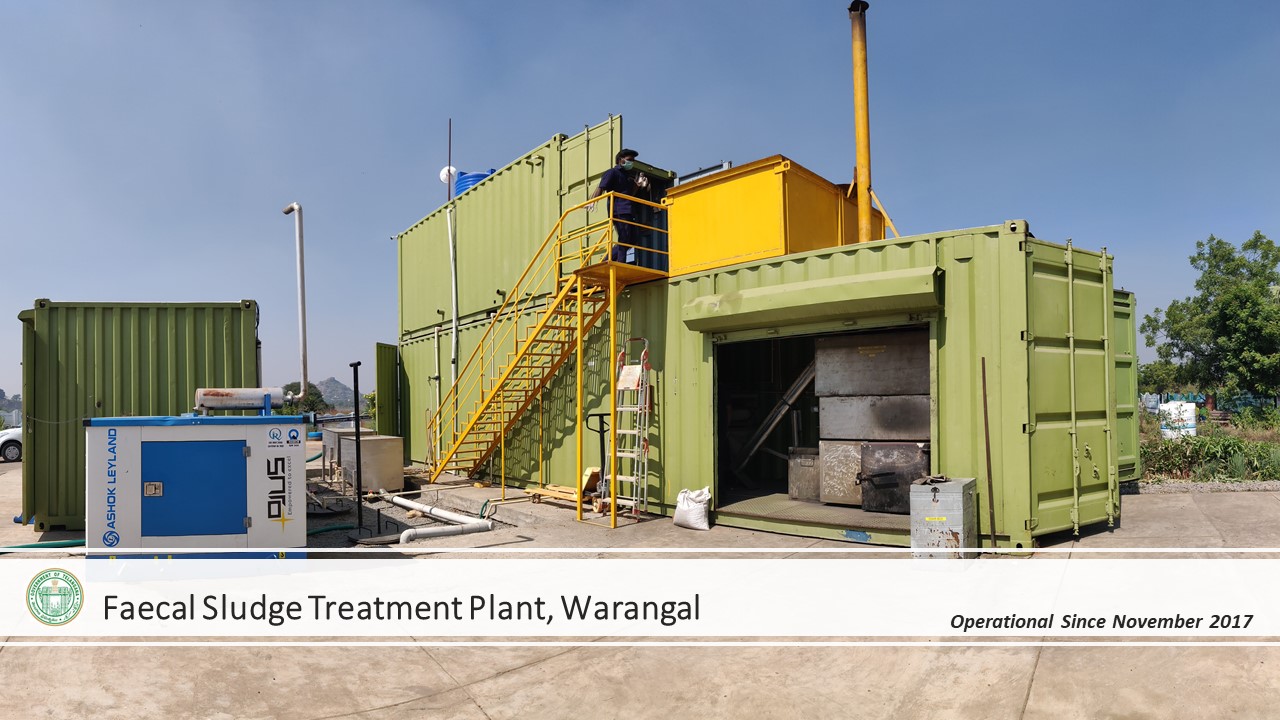
The State Govt. has earmarked budget for establishing 71 Standalone FSTPs, this momentum has encouraged private operators to make an investment in creating infrastructure.
ULBs have initiated land lease agreements and supported infrastructure such as access to roads, water and electricity for establishing functional FSTPs along with giving PCB clearance

The Telangana Mission fueled by the momentum of the Swachh Bharat Mission constructed over 2.88 lakh individual toilets, 1190 public toilets, 49 SHE toilets, 19 Mobile toilets and 317 community toilet blocks - in order to sustain the ODF status
Mission for Elimination of Poverty in Municipal Areas (MEPMA) in partnership with ASCI has trained TLFs/SLFs/SHGs/TVS/ Transgender communities on livelihood opportunities in Sanitation and the state has issued guidelines to engage them in operation and maintenance of Public and Community Toilets as well as SHE toilets
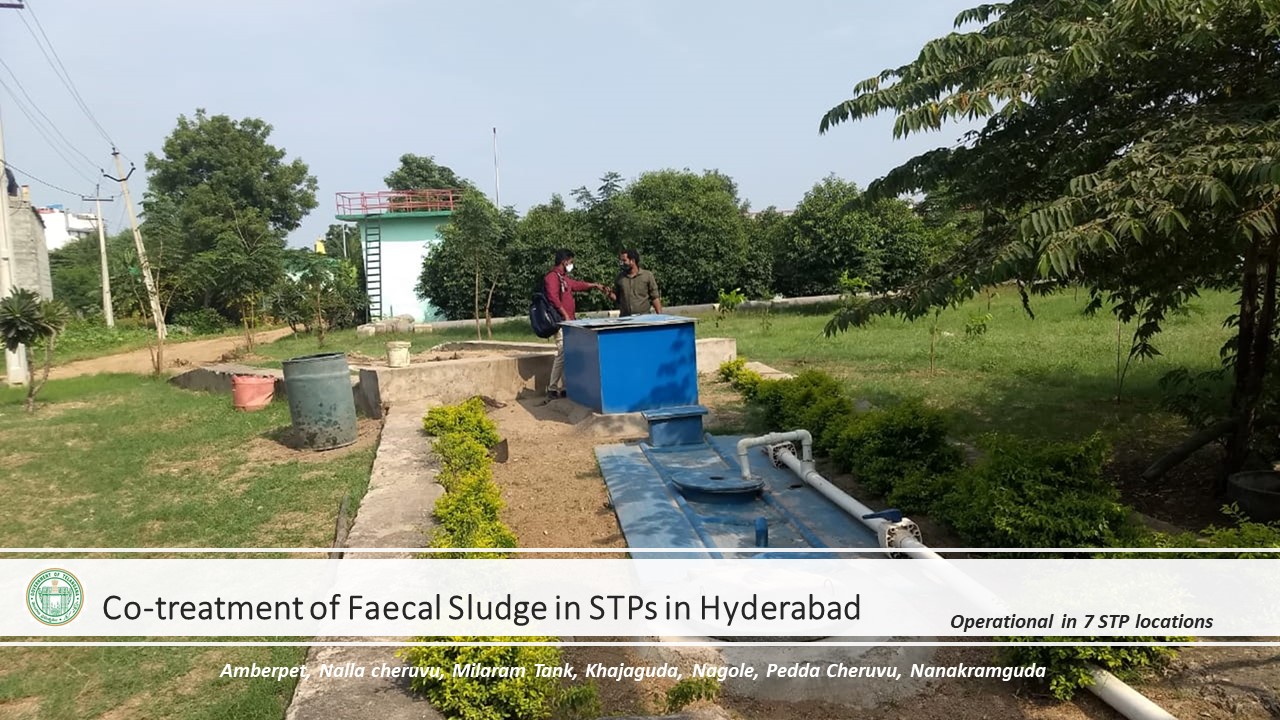
In alignment with the state vision, Hyderabad Metropolitan Water supply and Sewerage Board (HMWSSB) has taken concrete steps towards implementing FSSM in Hyderabad and has drawn plans to implement co-treatment facilities at all 18 functional STPs.
7 STPs were converted to co-treatment facilities and have treated more than 30 Million Liters of septage. Following this Karimnagar and Vikarabad ULBs have also opted for co-treatment in their existing functional STPs and many other ULBs have initiated the process
Upon successful implementation of Decentralized Wastewater Treatment Systems (DEWATS) in Warangal, the state has taken a decision to replicate the system in all the low-income housing projects through state funding.

The government has streamlined and optimized the monitoring of FSSM services using ICT services to ensure efficiency and tracking
The government has initiated the empanelment of desludging operators and issuing licenses for operating desludging vehicles. Additionally, GPS is fixed on trucks to monitor and record movement. This is further optimised by keeping a record via the mobile app.
A fortnightly 30-minute review meeting involving ULB, operators and ASCI team is organized to ensure accountability among the officials
Additionally, tracking tools like a Toilet tracker, citizen feedback system, FSSM tracker are included in ODF++ protocols
A dashboard to monitor progress of FSTP construction is developed and integrated with the state monitoring system in 2019.
A real time ICT system for monitoring the quality of public sanitation facilities called Pattana Pragathi Toilet Monitoring System (PPTMS) is launched in 2020.
Toilet containment specifications are integrated under the sanitation component of automated Building Permission System
Swachh Telangana web portal is used to monitor IHHL and insanitary toilet conversions.
A centralized booking system for septic tank cleaning services called Dial-a- Desludger is planned to be launched in Hyderabad

The Telangana Mission fueled by the momentum of the Swachh Bharat Mission constructed over 2.88 lakh individual toilets, 1190 public toilets, 49 SHE toilets, 19 Mobile toilets and 317 community toilet blocks.
Telangana govt proposed establishing FSTPs in 71 ULBs under 7 packages across the state following the success of the pilot projects in Warangal & Sircilla
7 pilot projects are under implementation before scaling up.
Public Private Partnership (PPP) and the Hybrid Annuity Model (HAM) is being used to scale up FSTP development. In order to bridge short term financing needs, it has been pertinent to improve accountability of plant operations and quality assurance and ensure the technical requirements are met.
Intensive workshops were conducted for ULB officials and private operators on FSSM and sustained operations of proposed FSTPs
Experiments have been conducted to make FSTP operations self-sustainable, through plausible revenue models such as tipping fee, scheduled desludging and resource recovery
Appointment of Independent Engineer was planned to ensure quality assurance during the construction stage of FSTPs.


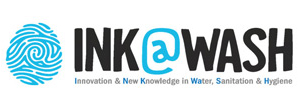

Warangal has emerged as a city of innovations. Learning from these experiences, Government of Telangana has established the WSH Innovation Hub to promote innovations at scale
As part of the WASH Innovation Hub the state had hosted the INKWASH summit on 30-31st Jan 2020 at Hyderabad, where a wide range of 155 innovations in the sanitation sector are showcased and Attended by representatives from over 80 cities across the county. A seed fund of INR 25 Cr had been announced by state government for establishing the WSH Innovation Hub
State funding for FSTPs and their operations in Telangana state stands at more than Rs. 25 crores for sustained capacity building efforts
The state has oriented more than 100 elected representatives, trained more than 500 ULB officials, signed MoUs with several institutions, like the SR Engineering college, for inclusion of FSSM in curriculums, BCC campaigns, MHM training for MEPMA and school teachers.
Separate fund allocation of Rs 3 crore was earmarked for IEC development and in this regard the state directive was also issued to all the ULBs
There is an ownership from the state officers towards continuous review, measurement and evaluation of FSSM services in urban areas
A comprehensive behavior change communication strategy and operation plan is developed to achieve the desired objectives of sustaining ODF (ODF-S)
21 FSTPs in Telangana are in the advanced stages of construction while 5 co-treatment plants in Telangana are operational
Independent Engineer (IE) have been appointed by the State Govt. to ensure quality assurance in construction of FSTPs on PPP mode.
35 more ULBs have passed council resolutions.
51 more ULBs have initiated empanelment of operators and issued licenses to more than 230 no of desludging vehicles
The state decided to build one public toilet per every 1000 population in all the ULBs, based on the national guidelines
State directive and detailed guidelines on design standards and innovative public toilet models were issued in March 2020.

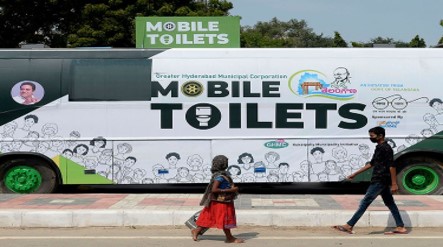
49 SHE toilets and 19 mobile SHE toilets have been established till date. Model RFP for gender inclusive sanitation through reservation of women groups in Public Toilets/Community Toilet development has been put in place.
During COVID-19, women groups were actively engaged in the manufacturing and supply of masks, sanitizers, aprons, soaps and other related PPE items.
An increase in the salary and monetary package for sanitation workers was implemented, along with extending loans, strengthening health programs and extending insurance for trucks
Telangana has paved the way for gender intentional sanitation through women entrepreneurship initiatives in partnership with WE-HUB and MEPMA and bringing in gender intentionality in the design of model contracts/RFPs to reserve CT/PT O&M by women SHGs.
Currently 170 such contracts have been extended to women SHGs"

Initiatives are being taken for mass desludging in slum settlements to arrive at a pro-poor tariff structure. The pilot for the same is to be undertaken in Hyderabad.
Sanitation worker safety measures have been given due importance due to COVID-19 as access to PPE kits and training has been assured by the government.
CSR funds have been tapped to ensure availability of PPE Kits to all sanitary workers.
Women enterprises with respect to desludging are actively promoted
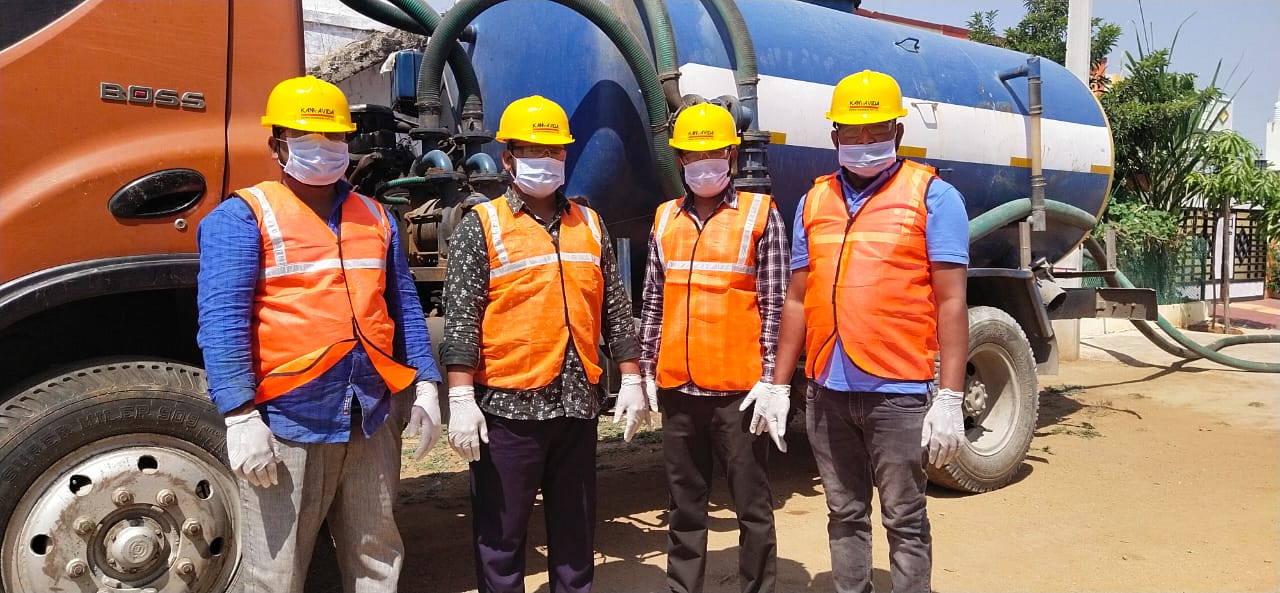
Scaling of the FSTPs to newly constituted 68 ULBs.
A 40 KLD FSTP is being established under CSR funding.
Warangal is establishing a 150KLD FSTP
Women-led Sanitation enterprises are being planned
Cities are establishing Emergency Response Sanitation Unit (ERSU)
Guidelines for wastewater management are being developed and FSSM is an integral part of these guidelines.
A separate department has been proposed to be established at the Greater Warangal Municipal Corporation in Environment Sanitation with a Civil Engineer, Environmental Engineer, MIS Expert, IEC/ Expert and gender expert to plan, implement and monitor the Sanitation (Waste water and faecal sludge) interventions in the city
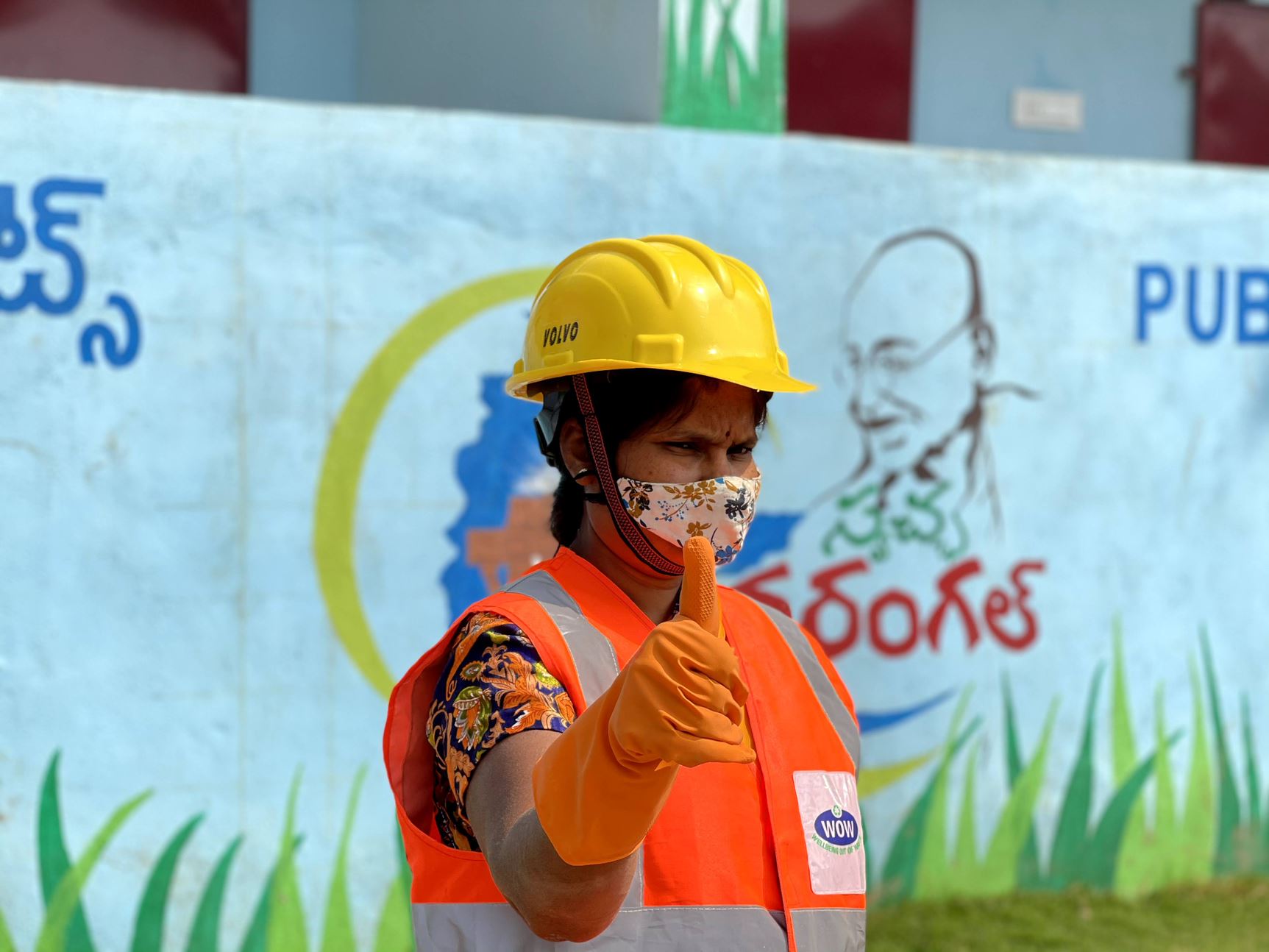

Focus areas supporting Telangana's FSSM achievements


The National Faecal Sludge and Septage Management (NFSSM) Alliance was convened in January 2016. The Alliance was convened to build consensus around faecal sludge and septage management. The Alliance with support from the Bill and Melinda Gates Foundation works in close collaboration with the Ministry of Housing and Urban Affairs and helped design a national policy on FSSM.

